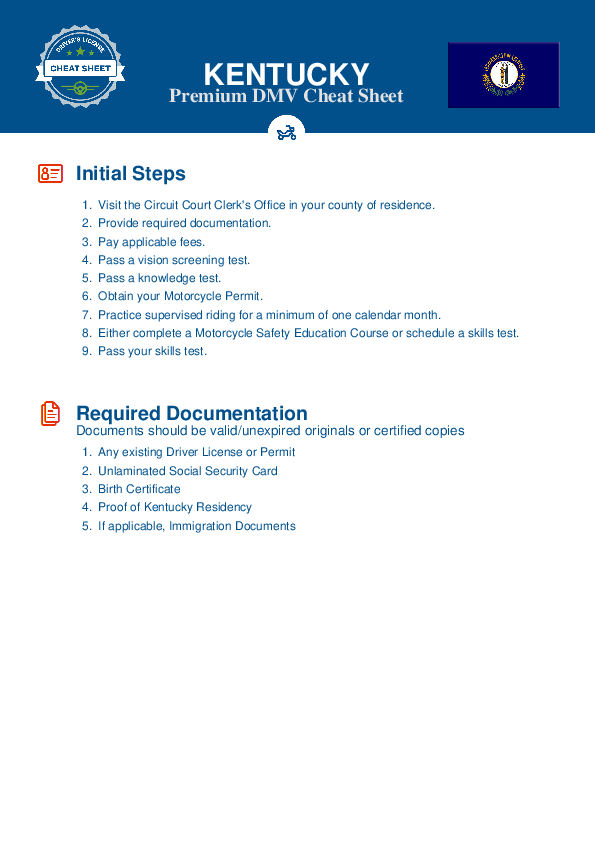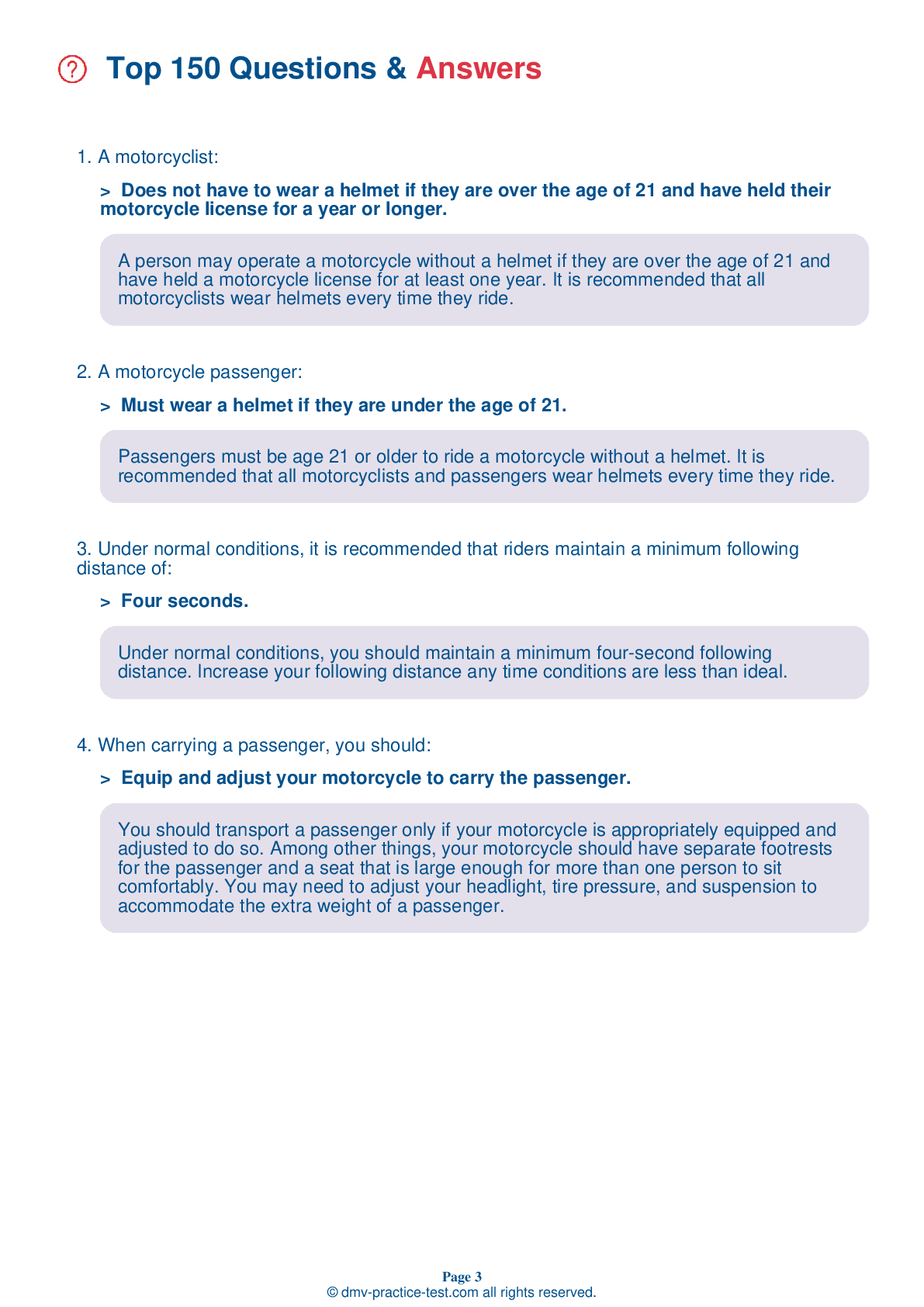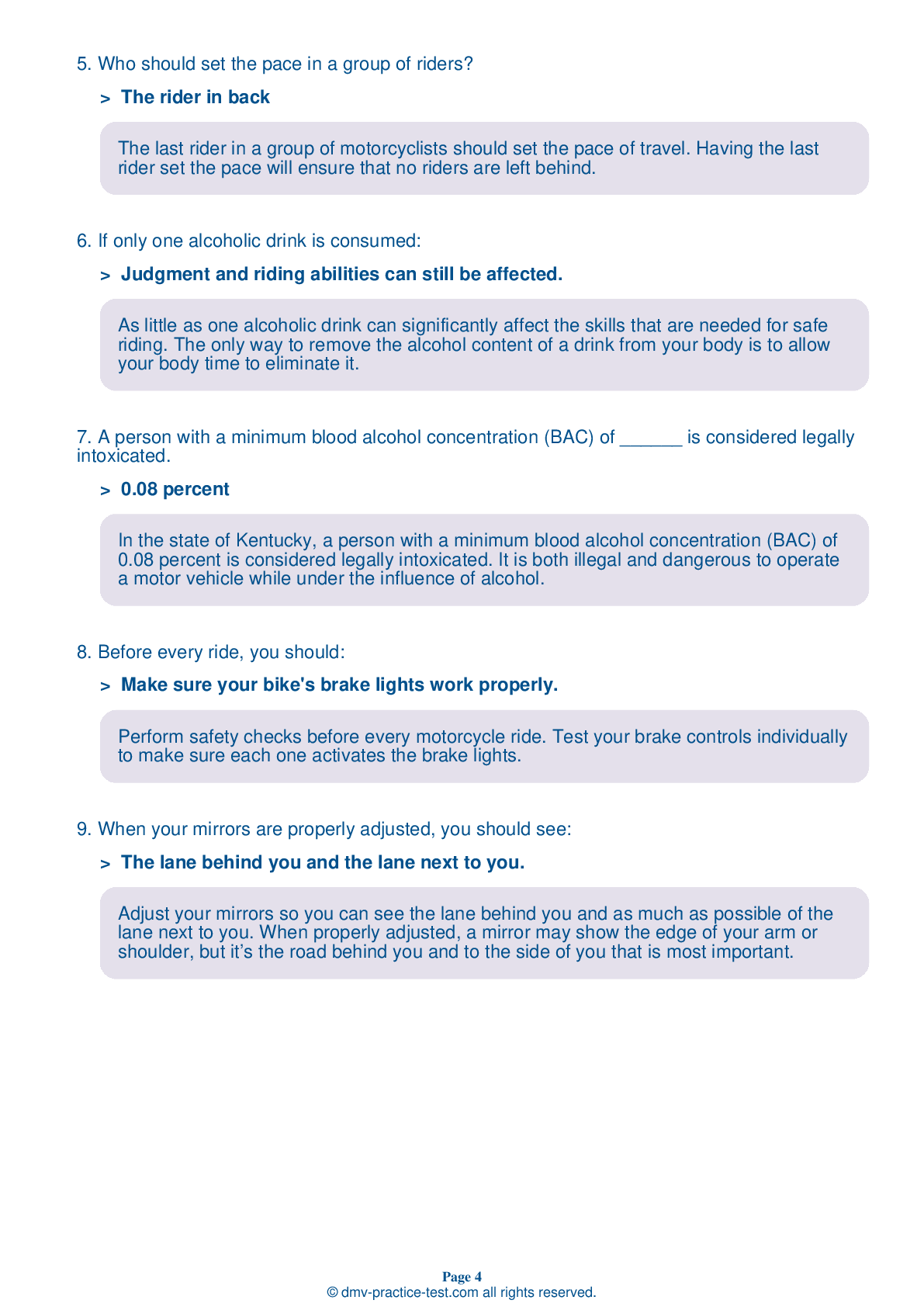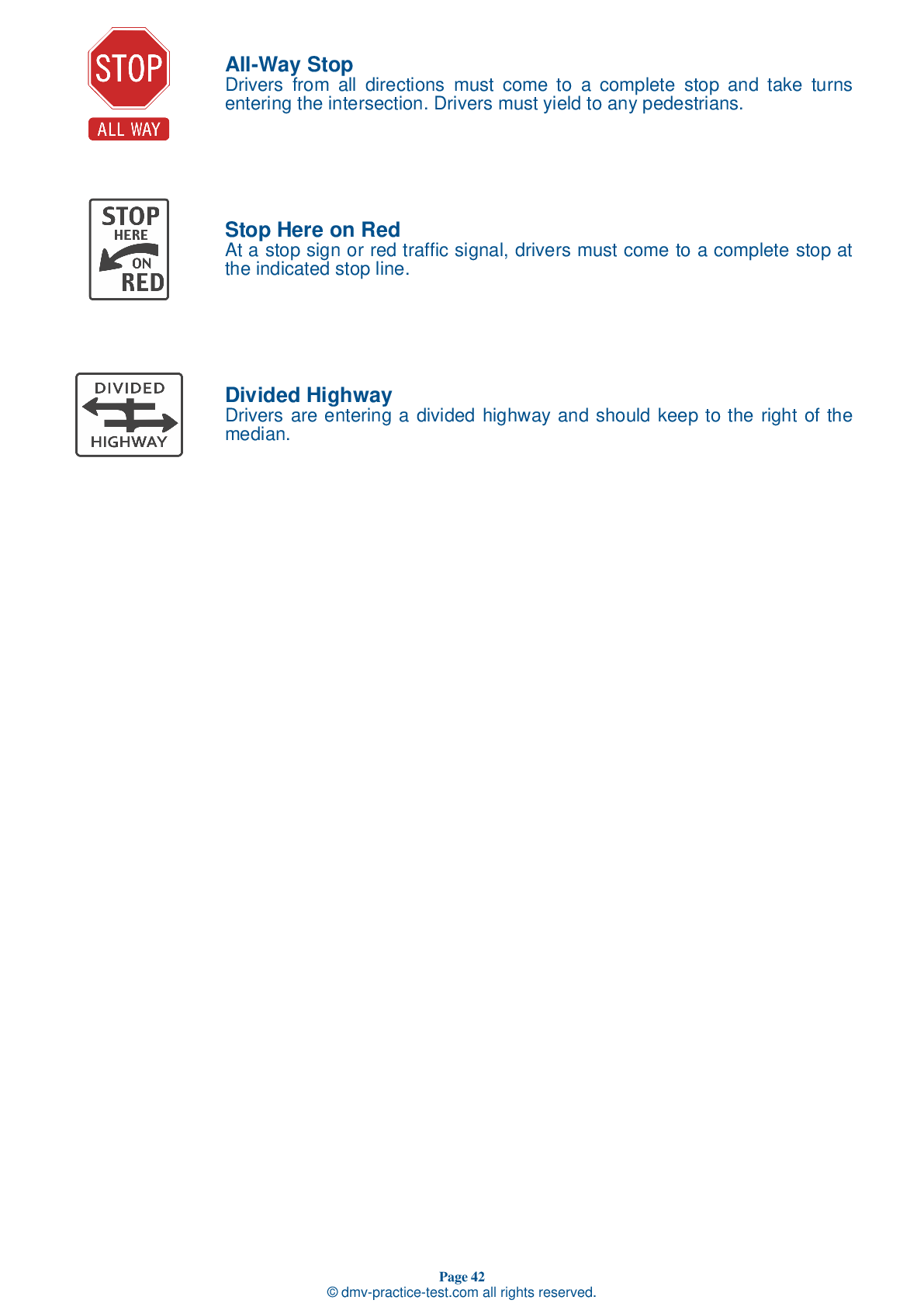Motorcycle Test | License KY 2026 | FREE Online Practice! #12 Page 2 of 4
Take this FREE motorcycle test (license in KY 2026) to check your knowledge of the road rules. To improve your results, download a motorcycle handbook online, study theory, and practice for free on our website. Still worried about how to get a motorcycle license in Kentucky in 2026? Check our website for more sample tests, train as much as possible, and boost your grades!
8 . Engine braking:
Shifting to a lower gear produces an effect similar to applying the brakes. This is known as engine braking.
9 . When riding in traffic, it is important to remember that motorcycles:
Like any other vehicle, motorcycles have blind spots. Always turn your head to check for traffic in your blind spot before changing lanes.
10 . An approved helmet:
Any approved helmet will allow a rider to see as far to the sides as is necessary for safe riding. Approved helmets will have labels and markings providing the manufacturer's name, relevant information and instructions, and information about the standards the helmet meets.
11 . When braking:
You should use both brakes every time you slow or stop.
12 . Motorcycles:
Motorcycles have blind spots, just like any other vehicle. Always turn your head to check your blind spot before changing lanes. Head checks should be a regular part of your scanning routine.
13 . When approaching a blind intersection, riders should:
When approaching a blind intersection that is controlled by a stop line or stop sign, you must first stop where indicated. You may then edge forward and stop again just short of where the cross traffic lane meets your lane. From that position, lean your body forward and look around buildings, parked cars, or bushes to see if anything is approaching. Make sure your front wheel stays out of the crossroad while you are looking.
14 . When riding a motorcycle, clothing:
The right clothing can provide vital protection if you are involved in a collision. Always wear a jacket and pants that fully cover your arms and legs, even in warm weather. Clothing should fit snugly enough that it does not flap in the wind but should also be loose enough that your movement is not restricted.
See the exact questions that will be on the 2026 Kentucky DMV exam.
99.2% of people who use the cheat sheet pass the FIRST TIME
Jeneen was tired of paying $5/gallon. She got herself a scooter that required the motorcycle license. She studyed the motorcycle test cheat sheet and passed her test the next day!
Christopher tells us how he knew nothing prior to obtaining the motorcycle study guide, and he only got one question wrong because he clicked on the wrong answer by mistake.



